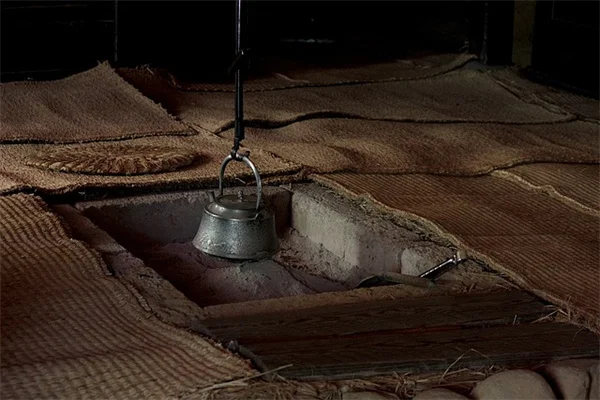Advertisement
Can air pollution really mess with your heart rhythm? The answer is a resounding yes - and faster than you might think! New research shows that exposure to heavy air pollution can spike your risk of irregular heartbeat within just hours. We're talking about pollutants like PM2.5 and nitrogen dioxide (NO2) that are common in urban areas.Here's what's happening: When you breathe in dirty air, the harmful chemicals cause oxidative stress and inflammation that disrupt your heart's electrical system. It's like throwing a wrench into your body's natural rhythm section. The scary part? Men seem particularly vulnerable, possibly because we tend to have more risk factors like smoking and outdoor work exposure.But there's good news too - your body starts recovering after about 24 hours in cleaner air. In this article, we'll break down exactly how pollution affects your ticker and what you can do to protect yourself when air quality takes a nosedive.
E.g. :Apple Hearing Study Reveals: 1 in 3 Americans Face Dangerous Noise Levels
- 1、How Air Pollution Messes With Your Heart Rhythm
- 2、Your Heart on Pollution: The Science Behind the Scary
- 3、Real World Consequences of Dirty Air
- 4、What You Can Do to Protect Yourself
- 5、The Hidden Costs of Air Pollution Beyond Heart Health
- 6、The Surprising Everyday Sources of Pollution
- 7、Simple Lifestyle Changes With Big Impact
- 8、The Power of Community Action
- 9、FAQs
How Air Pollution Messes With Your Heart Rhythm
That moment when bad air makes your heart skip a beat
Picture this: You're walking down a smoggy city street when suddenly your heart starts doing the cha-cha slide. That's not just nerves - it could be the dirty air you're breathing. A massive new study tracking over 190,000 patients in China shows pollution can trigger irregular heartbeats faster than you can say "clean air act."
Here's the scary part: The risk shoots up within hours of exposure. We're talking about pollutants like PM2.5 (those nasty tiny particles), nitrogen dioxide (think car exhaust), and other airborne troublemakers. The table below shows which pollutants cause the most trouble:
| Pollutant | Heart Rhythm Risk |
|---|---|
| Nitrogen Dioxide (NO2) | Highest risk |
| PM2.5 | Very high risk |
| Sulfur Dioxide (SO2) | Moderate risk |
Why men should be extra careful
Guys, listen up! The study found men get hit harder by pollution's heart effects. Why? Maybe because we tend to smoke more, drink more, and work outside more. Basically, we're stacking risk factors like Jenga blocks.
Cold weather makes it worse too. When temperatures drop, pollution seems to pack a stronger punch to your ticker. So if you're a dude working construction in winter smog... maybe take extra precautions.
Your Heart on Pollution: The Science Behind the Scary
 Photos provided by pixabay
Photos provided by pixabay
What's actually happening inside your chest?
Ever wonder why dirty air makes your heart go wonky? Scientists think it's like throwing a chemical grenade into your body. The pollutants cause oxidative stress (fancy term for cellular damage) and inflammation that messes with your heart's electrical system.
Here's a gross but helpful comparison: Imagine pouring sand into a watch. That's basically what pollution does to your heart's delicate timing mechanisms. The most common problems researchers saw were atrial fibrillation (your heart's DJ scratching the records) and supraventricular tachycardia (your heart trying to win a sprint race).
How fast does this happen?
Faster than you'd think! The risk spikes within hours of breathing bad air. But here's some good news - your body starts recovering after about 24 hours in cleaner air. But why take the risk at all?
That's a great question! Even short exposures can trigger serious rhythm problems that might land you in the ER. And if you already have heart issues, pollution is like adding gasoline to that fire.
Real World Consequences of Dirty Air
From skipped beats to hospital sheets
Dr. Prunicki from Stanford puts it bluntly: "We know chronic air pollution impacts the heart." We're not just talking about feeling a little off - pollution contributes to atherosclerosis (clogged arteries), which can lead to heart attacks and strokes.
Think of your arteries like highways. Pollution adds traffic cones and construction zones, slowing down the blood flow until eventually... gridlock. And nobody wants a traffic jam in their coronary arteries.
 Photos provided by pixabay
Photos provided by pixabay
What's actually happening inside your chest?
Here's the scary part - we don't actually know how much pollution is "safe." Even areas with "acceptable" pollution levels show increased blood pressure and other heart stress. Basically, there's no safe smoking section when it comes to air pollution.
The researchers analyzed data from 2,025 hospitals across 322 Chinese cities - that's a ton of data! They specifically looked at six pollutants and four types of arrhythmias to get these results.
What You Can Do to Protect Yourself
Fighting back against invisible enemies
First, check your local air quality like you'd check the weather. Apps like AirVisual or government sites give real-time pollution data. When it's bad:
- Stay indoors with windows closed
- Use air purifiers if possible
- Wear N95 masks outside
- Avoid intense exercise
But is this just an individual problem? Heck no! While personal protection helps, we need systemic changes. Support clean energy initiatives, vote for environmental policies, and advocate for cleaner transportation options in your community.
Why this matters for everyone
Even if you're healthy now, pollution exposure builds up over time like a toxic savings account. Kids exposed to bad air today might have heart problems decades later. The study authors hope their findings push governments to take air quality more seriously.
As Dr. Samet puts it: "We have ample evidence air pollution affects heart rhythms. Now we need to understand exactly how." Until then, do your heart a favor and breathe easy - literally.
The Hidden Costs of Air Pollution Beyond Heart Health
 Photos provided by pixabay
Photos provided by pixabay
What's actually happening inside your chest?
Did you know that the same pollutants messing with your heart rhythm can also fog up your thinking? Recent studies show that PM2.5 particles don't just stop at your lungs - they take a joyride straight to your brain. I'm talking about memory problems, slower reaction times, and even increased risk of dementia.
Imagine trying to solve a math problem while someone's blowing cigarette smoke in your face. That's essentially what happens when you're exposed to high pollution levels for extended periods. The scary part? These cognitive effects can show up in kids as young as five, potentially affecting their school performance and future earning potential.
The economic domino effect
Let's talk dollars and cents for a second. When pollution makes people sick, who do you think foots the bill? We all do! Between healthcare costs, lost productivity, and premature deaths, air pollution costs the U.S. economy about $886 billion annually. That's enough money to buy every American a brand new iPhone every year!
Here's a breakdown of how these costs add up:
| Impact Area | Estimated Annual Cost |
|---|---|
| Healthcare Expenses | $320 billion |
| Lost Work Days | $190 billion |
| Premature Deaths | $376 billion |
The Surprising Everyday Sources of Pollution
Your cozy home might be part of the problem
When we think about air pollution, we usually picture smokestacks and traffic jams. But guess what? Your gas stove emits nitrogen dioxide levels that would violate outdoor air quality standards if they were measured outside. That's right - you might be cooking up more than just dinner!
Other sneaky indoor polluters include scented candles (sorry, pumpkin spice lovers), certain cleaning products, and even your beloved printer. The EPA says indoor air can be 2-5 times more polluted than outdoor air. Makes you think twice about where you're spending most of your time, doesn't it?
The weather connection you didn't see coming
Here's a mind-bender: climate change is making air pollution worse, and air pollution is making climate change worse. It's like the world's worst chicken-and-egg scenario. Hotter temperatures increase ozone formation, while wildfires (which are becoming more frequent) pump insane amounts of PM2.5 into the air.
Remember that orange sky day when the West Coast wildfires made it look like Mars? That wasn't just an Instagram filter - that was millions of tons of particulate matter floating through the atmosphere. And guess what? Those particles don't just disappear when the wind changes direction.
Simple Lifestyle Changes With Big Impact
Your grocery list could save the planet
What if I told you that choosing chicken over beef once a week could make a difference? The meat industry contributes significantly to air pollution through methane emissions and fertilizer runoff. Going meatless just one day a week reduces your annual carbon footprint by about 8% - that's like taking your car off the road for a whole month!
Other easy food swaps:• Local seasonal produce instead of air-freighted exotic fruits• Bulk items to reduce packaging waste• Reusable grocery bags (and actually remembering to bring them!)
Transportation hacks for cleaner air
You don't need to sell your car and live off-grid to make a difference. Simple changes like:• Combining errands into one trip• Keeping your tires properly inflated• Avoiding drive-thrus (idling is a major polluter)Can cut your vehicle emissions by up to 20%.
But what about electric vehicles? Great question! While EVs are cleaner in the long run, their environmental impact depends on how your local electricity is generated. In coal-heavy areas, you might want to consider a hybrid first. The key is to think about your specific situation rather than following trends blindly.
The Power of Community Action
How your neighborhood can team up
Remember when everyone came together to clap for healthcare workers during COVID? We need that same energy for clean air initiatives! Neighborhood tree-planting projects can reduce local PM2.5 levels by up to 24%. Community solar programs let multiple households share renewable energy benefits.
Some successful community projects include:- Carpool lanes for school runs- Local farmers markets reducing food miles- "Idle-free" zones near schools- Neighborhood air quality monitoring networks
Your voice matters more than you think
One email to your local representative about bike lanes or cleaner school buses might seem small, but when hundreds of people speak up, change happens. Many cities have seen dramatic air quality improvements after citizens pushed for:• Stricter industrial emissions standards• Better public transportation options• Urban green spaces
The bottom line? While individual actions help, collective action creates real change. Your heart (and lungs, and brain) will thank you for getting involved!
E.g. :Air Pollution and the Triggering of Cardiac Arrhythmias - PMC
FAQs
Q: How quickly can air pollution affect my heart rhythm?
A: Faster than you'd expect! The study found that arrhythmia risk spikes within just a few hours of exposure to heavy air pollution. Your heart's electrical system is incredibly sensitive to those nasty pollutants like PM2.5 and nitrogen dioxide. Think of it like this - your heart is a finely tuned instrument, and pollution is like someone randomly plucking the strings. The good news? Your body starts bouncing back after about 24 hours in cleaner air. But why take the risk? If you know air quality is bad, take precautions like staying indoors or wearing an N95 mask.
Q: Which air pollutants are most dangerous for heart health?
A: According to the research, nitrogen dioxide (NO2) takes the top spot as the most dangerous pollutant for heart rhythm disturbances. It's followed closely by PM2.5 (those microscopic particles from vehicle exhaust and industrial emissions). The study actually ranked them like this: 1) NO2 (worst offender), 2) PM2.5, 3) sulfur dioxide, with others trailing behind. What makes these particularly nasty? They're small enough to penetrate deep into your lungs and bloodstream, causing inflammation that messes with your heart's electrical signals.
Q: Why are men more affected by pollution-related heart issues?
A: Great question! The researchers found that men showed stronger associations between pollution and arrhythmias. There are a few likely reasons for this: First, men tend to have higher rates of risk factors like smoking and alcohol use. Second, many men work in outdoor jobs (construction, transportation, etc.) with greater pollution exposure. Third, there might be biological differences in how male and female bodies process these pollutants. Basically, guys - we need to be extra careful when the air quality index starts climbing!
Q: Can air pollution trigger a heart attack or stroke?
A: While this study focused on arrhythmias, yes - there's well-established evidence that air pollution contributes to more serious cardiovascular events. Here's how it works: Chronic exposure leads to atherosclerosis (plaque buildup in arteries), which is basically like clogged pipes in your circulatory system. This restricted blood flow increases risks for heart attacks and strokes. Dr. Prunicki from Stanford explains it perfectly: "This buildup can restrict blood flow to the heart and other major blood vessels." So those irregular heartbeats might be warning signs of bigger trouble brewing.
Q: What can I do to protect myself on high pollution days?
A: First, check your local air quality index (AQI) like you'd check the weather - apps like AirVisual are great for this. When levels are unhealthy: 1) Stay indoors with windows closed, 2) Use air purifiers if possible, 3) Wear N95 masks outside, 4) Avoid intense exercise. But here's the thing - personal protection isn't enough. We need systemic changes too! Support clean energy initiatives and advocate for better environmental policies in your community. Remember, even "moderate" pollution levels can affect sensitive individuals, so don't wait for "hazardous" warnings to take action.







